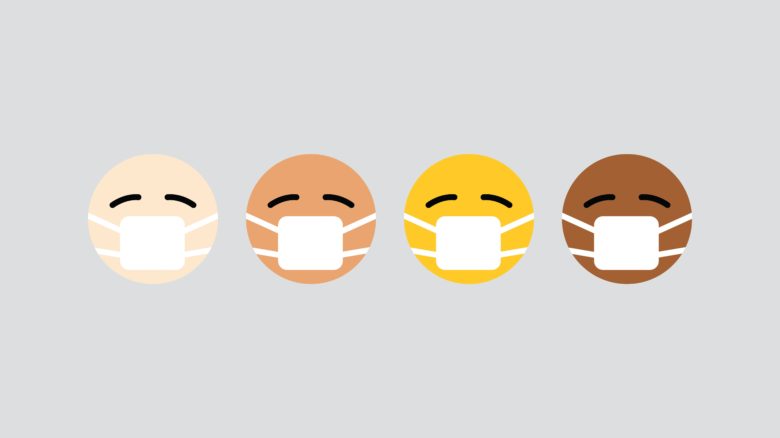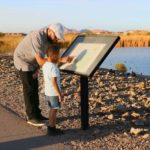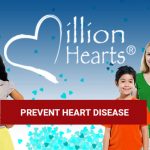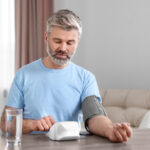Managing Other Chronic Diseases and Covid-19
Managing Other Chronic Diseases and Covid-19
A recent Get Healthy blog post highlighted the importance of managing diabetes during this pandemic, but what about other chronic conditions?
Anyone can get sick from COVID-19, but people who are older than 65 and people of any age who have a serious chronic disease, are the most likely to become very ill from complications of the coronavirus.
People who have one or more of these chronic conditions should be extra careful to protect their health from COVID-19:
- Asthma and lung disease
- Heart disease
- Unmanaged diabetes
- Severe obesity (BMI>40)
- Weakened immune systems because of diseases like HIV or because people are going through cancer treatment.
Everyone should follow the CDC’s recommendations to prevent COVID-19 but especially those with chronic conditions:
- Avoid crowded places and stay at home.
- When you are outside your home, stay 6 feet away (at least two arms’ length) from other people.
- Wash your hands often with soap and water for at least 20 seconds (or the time it takes to sing “Happy Birthday” twice). If you don’t have soap and water, you can use hand sanitizers that contain at least 60% alcohol.
- Avoid touching your eyes, nose, and mouth with unwashed hands.
- Cover your cough or sneeze with the inside of your elbow.
- Clean objects or surfaces in your home that people touch a lot, such as doorknobs, elevator buttons, and keypads.
It can be difficult to manage a chronic condition during this time, but it is important to do all that you can to maintain your health. Here is some additional information on managing chronic conditions during this pandemic.
CANCER
Some types of cancer and cancer treatments can weaken people’s immune systems and can make them more likely to get very ill from COVID-19.
What you can do:
- Take regular medications on time and as directed (reach out to your healthcare provider to ask about obtaining an extra supply of medications in case you cannot get to the pharmacy or clinic). Before going into your appointments for cancer treatment, ask your doctor how you can help protect yourself from potential exposure to COVID-19.
- Check if any oral medications that you are taking can be mailed to you so that you don’t have to go to the pharmacy or the clinic.
- Your doctor may recommend other things that you should do to isolate yourself from others to help make sure that your treatments have the best chance of working.
- Eat healthy foods. Choose a diet rich in fruits and vegetables. Select whole grains and lean proteins.
- Increase physical activity: Aim for 30 minutes of exercise on most days of the week. If you haven’t been exercising regularly, start out slowly and work your way up to 30 minutes or longer.
- Use the telemedicine/telehealth option for a regular medical visit (your healthcare provider can tell you if your insurance company offers this option).
ASTHMA
Both asthma and COVID-19 can harm your lungs. If you have asthma and get ill with COVID-19, it could lead to life-threatening lung conditions.
What you can do:
- If you have one, follow your Asthma Action Plan (www.cdc.gov/asthma/actionplan.html).
- Take your medications as directed. Talk to your doctor and pharmacist to be sure you have an emergency supply of prescription medications.
- Use the telemedicine/telehealth option for a regular medical visit (your healthcare provider can tell you if your insurance company offers this option).
- Eat healthy foods. Choose a diet rich in fruits and vegetables. Select whole grains and lean proteins.
- Increase physical activity: Aim for 30 minutes of exercise on most days of the week. If you haven’t been exercising regularly, start out slowly and work your way up to 30 minutes or longer.
- Stop smoking and using e-cigarettes, which can cause lung damage. Quitting tobacco use now can help you improve your health. People with chronic diseases who use tobacco are most likely to have life-threatening health issues. If you use tobacco, make the commitment today to quit. Many free resources are available, including a confidential quitline service. For FREE help to quit smoking call the Nevada Tobacco Quitline at 1-800-QUIT-NOW (1-800-784-8669) from a NV area code.
HEART DISEASE
COVID-19 can strain all of the systems in the body, which puts additional stress on your heart. In patients with heart disease, COVID-19 can make it more likely that your heart won’t be able to keep up with the needs of your body.
What you can do:
- Ask your doctor about telehealth visits to manage your condition so that you don’t have to go into the clinic, where you could potentially be exposed to COVID-19.
- Make time to keep measuring your blood pressure if you have hypertension and check your blood sugar if you have diabetes.
- Maintain the medications and treatment plan that you and your doctor created.
- Keep up the healthy habits that your doctor recommends, including healthy eating, exercise, getting enough sleep, and managing stress. Focus on eating healthy and being active during the day.
- Stay up to date on other vaccinations that can protect you from diseases that stress your heart, including pneumonia and the flu.
- Eat healthy foods. Choose a diet rich in fruits and vegetables. Select whole grains and lean proteins.
- Increase physical activity. Aim for 30 minutes of exercise on most days of the week. If you haven’t been exercising regularly, start out slowly and work your way up to 30 minutes or longer.
- Stop smoking and using e-cigarettes. For FREE help to quit smoking call the Nevada Tobacco Quitline at 1-800-QUIT-NOW (1-800-784-8669) from a NV area code.
It is never too late to make changes to your health. Big changes like deciding to quit smoking are HUGE boosts to your overall health. Even small changes like doing light exercise during commercial breaks or choosing to eat fruit instead of another snack can make a difference. Whatever you choose to change, know that it all adds up to a better and healthier YOU!
For more information, please visit: NACDD webpage for COVID-19 resources.









